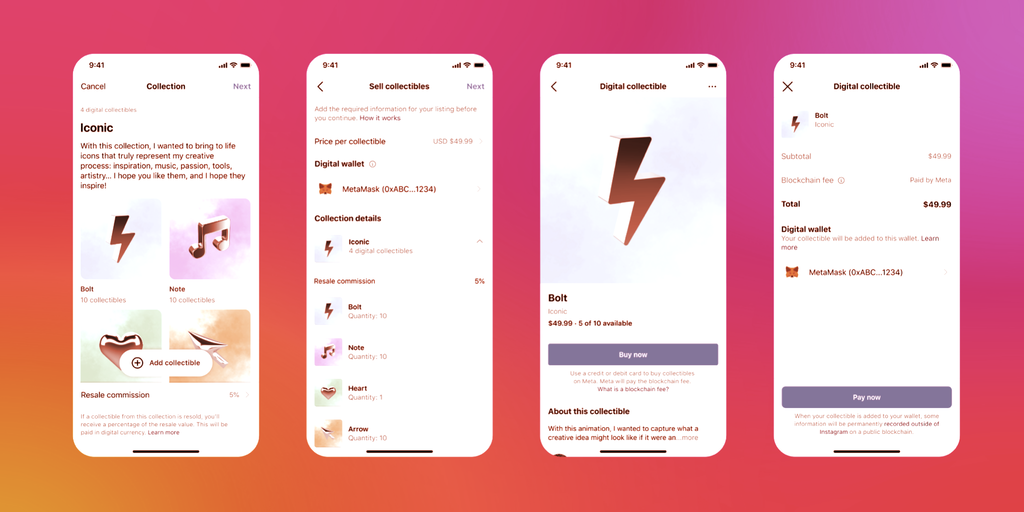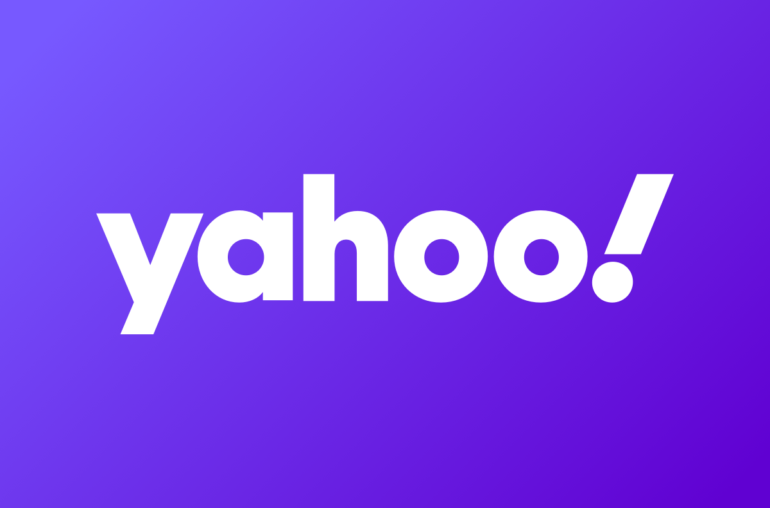Search
Instagram is developing an NFT minting and sale feature through its app, parent company Meta announced Wednesday. The upcoming “end-to-end toolkit” for NFTs will allow users to create and launch their own NFTs for sale through Instagram.
“A small group of creators will soon be able to create digital collectibles (NFTs) and sell them right on Instagram,” said Meta’s Head of Commerce and Fintech Stephane Kasriel in a statement.
NFTs–which Meta often calls “digital collectibles”—are unique blockchain tokens that signify ownership over an asset, typically a piece of digital art.
At launch, Instagram will use the Polygon blockchain for NFT minting. The app will also pull NFT metadata from OpenSea so that collection names and descriptions can be viewed on Instagram.
"Creators on Instagram having the opportunity to engage with fans and monetize through Polygon-powered digital collectables is a watershed moment for both the creator economy and web3," Polygon Studios CEO Ryan Wyatt told Decrypt. "Accessibility is still one of the biggest hurdles to onboarding new users to Web3 and making this process easier, faster, cheaper, and more approachable will have an immense impact."
Meta will roll out the new NFT features to a select group of artists and content creators first before offering the features to a broader audience, the company shared in a statement. Creators such as photographer DrifterShoots, visual artist Ilse Valfré, and artist Amber Vittoria are among those selected for early access to the new Instagram NFT features.
Vittoria told Decrypt via Twitter DM that she’s excited that Instagram is continuing its push into NFTs.
“Meta and Instagram are consistently finding new and innovative ways to help creators support themselves and their art practice,” Vittoria said.
This slow rollout strategy matches the rest of Meta’s approach to Web3. Back in May, it announced it was rolling out a wallet connection feature to select creators to display their NFTs on their Instagram and Facebook profiles.
Today, Facebook and Instagram support displaying NFTs on the Ethereum, Polygon, and Flow blockchains, allowing users to connect their wallets to their accounts to display NFTs. Support for Solana and Phantom wallets is coming.
Why the big NFT push? Meta says it believes in the vision of Web3—and wants creators to leverage NFTs to better monetize their content.
“Our strategy for Web3 technologies—including blockchain—is focused on helping creators make a living,” Kasriel said.
“We believe Web3 tech, like blockchain, will positively enhance the economic model for creators by giving them the ability to create new types of digital assets to monetize.”
But Kasriel also thinks the crypto space is flooded with “complex experiences” that are inhibiting mass adoption.
“There needs to be a much simpler user experience,” he said.
While Meta won’t initially charge its own fees for NFT sales made through its applications, that is on the horizon. It’s also vowed to cover Polygon gas fees for buyers “at launch,” but did not specify an end date for the perk.
“Meta won’t charge fees to create or sell digital collectibles until 2024,” Kasriel said, but noted that any in-app transactions “are still subject to applicable app store fees” such as Apple’s controversial 30% tax.
What’s unclear, however, is whether users will jump for the convenience of an in-app Instagram NFT purchase—and whether Instagram’s NFT features will also roll out to the browser version of its platform in the future.
In response to Decrypt's request for comment, a Meta representative pointed toward Kasriel's statement published on Medium.
"Instagram was a catalyst in my creative career—it decentralized the publishing of imagery—much like the printing press did for the written word," said photographer Dave Krugman, who was also chosen for early access to Instagram's new NFT features.
"I was able to avoid the limitations of a gatekept media landscape and access my audience directly. It changed everything for me—and this next step is a clear continuation of that decentralization of access and engagement with our audiences."
Editor's note: this article has been updated to include a statement from Polygon Studios.


